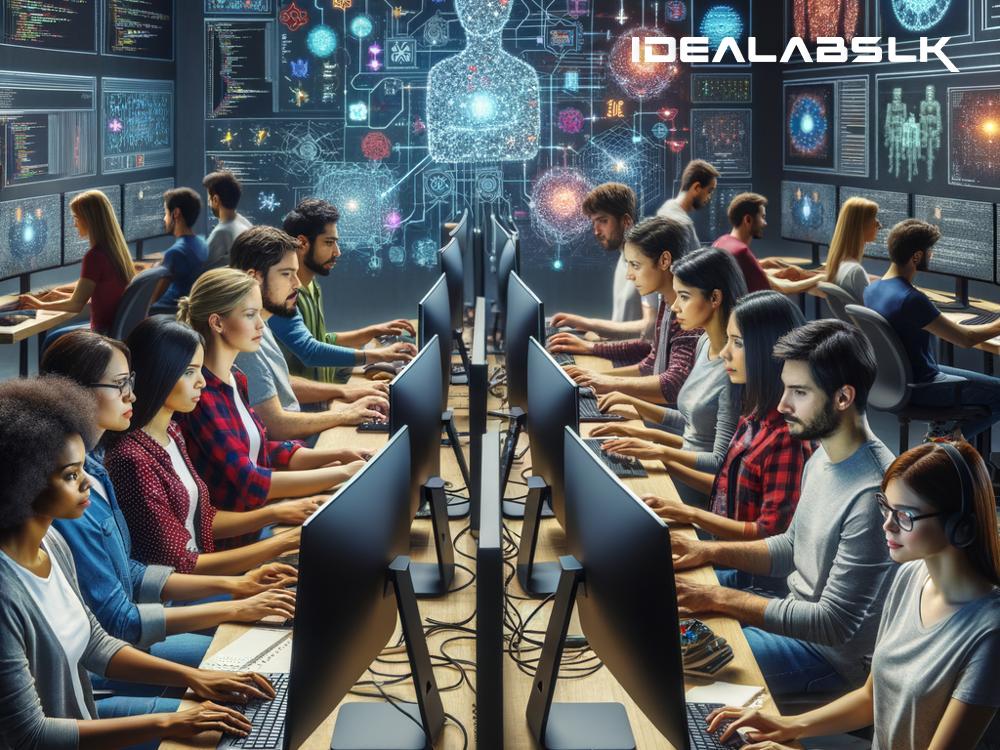How AI Will Impact the Future of Game Engines: Creating Smarter and More Efficient Game Development Tools in 2024
As we inch closer to 2024, the landscape of video game development is on the brink of a monumental shift, thanks to the rapid advancements in Artificial Intelligence (AI). Game engines, the backbone software used to create video games, are set to evolve into smarter, more efficient tools that could revolutionize how games are developed, played, and experienced. Let's dive into how AI is poised to redefine the future of game engines, making the process of game development more intuitive, creative, and accessible.
The Evolution of Game Engines
Historically, game engines were complex, requiring extensive coding knowledge and a deep understanding of game mechanics. This complexity often limited game development to professionals. Fast forward to 2024, AI integration into game engines is simplifying these complexities, democratizing game development, and opening up the field to a broader array of creators.
Accelerating Game Development
One of the most significant impacts of AI on game engines is the substantial reduction in development time. AI algorithms can automate tedious and time-consuming tasks, such as coding basic game mechanics or generating landscape textures. Imagine creating vast, detailed worlds in a fraction of the time it used to take, or using AI to animate characters based on a few key frames, streamlining what once was a labor-intensive process. This efficiency not only accelerates the development timeline but also allows developers to focus more on the creative aspects of game creation.
Personalized Gaming Experiences
AI-driven game engines will enable the creation of games that are more responsive to players' actions, preferences, and playing styles. By analyzing player data in real-time, AI can adjust game difficulty, present unique challenges, or even alter storylines, crafting a highly personalized gaming experience. This level of dynamic content adaptation means that two players could play the same game but have vastly different experiences based on their choices and interactions within the game world.
Enhancing Creativity and Experimentation
The infusion of AI into game engines is a game-changer for creativity and experimentation in game design. With AI handling the heavy lifting of coding and other technical tasks, developers can focus more on exploring new ideas, narratives, and gameplay mechanics. This shift will likely lead to an explosion of innovative and genre-defying games. Furthermore, AI can be used as a creative partner, suggesting design modifications, generating art or music, and even helping to plot out narratives, essentially co-creating alongside human developers.
Making Game Development More Accessible
Perhaps one of the most exciting aspects of AI's integration into game engines is the democratization of game development. By simplifying the technical aspects of game creation, AI enables people with little to no coding experience to bring their game ideas to life. This accessibility could usher in a new era of indie game development, where unique and diverse voices bring fresh perspectives and stories to the gaming world. As these tools become more user-friendly, we could see a surge in hobbyist game developers, further enriching the gaming ecosystem.
The Future is Collaborative: AI and Human Ingenuity
As we look toward 2024, it's clear that AI will not replace human developers but rather augment and amplify their capabilities. The role of the game developer will evolve, requiring a blend of creative vision and the ability to work alongside AI to harness its potential. This collaboration between human creativity and machine efficiency will be the cornerstone of next-generation game development.
Conclusion
The integration of AI into game engines is poised to transform the game development landscape in 2024 and beyond. By making development tools smarter and more efficient, AI will not only speed up the development process but also unlock new realms of creativity, personalization, and accessibility. As we stand on the cusp of this exciting transition, one thing is clear: the future of game development is bright, and it's powered by AI. The possibilities are as vast and varied as the virtual worlds we're about to create, inviting everyone into the once gated realm of game development and unleashing a new era of innovation and creativity.

